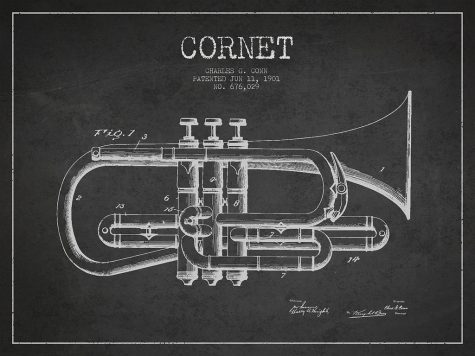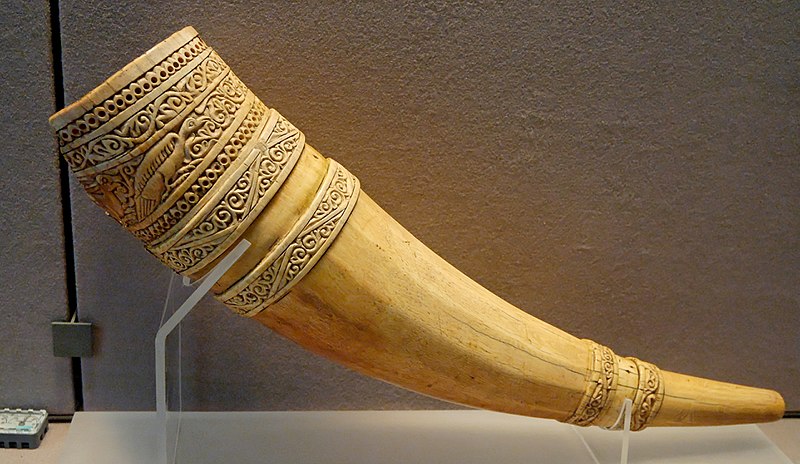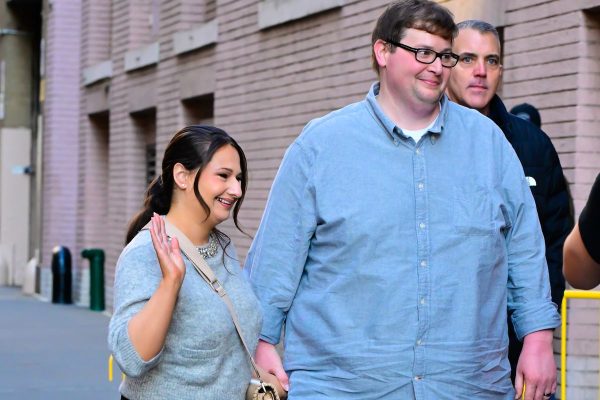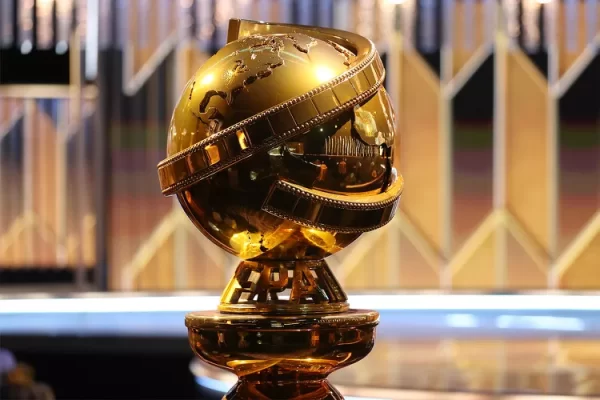Music Through Time
Late 11th century Horn Louvre used in music ceremonies.
Music has been transforming society and culture over millions of years.
Music is found in every known culture from the past to present. Music is an art to some cultures, and it allows people to express their passions and beliefs. It has been proven in today’s society music has a positive impact on teens across the world.
It is believed music was first invented in Africa, and has since evolved into daily human life. Prehistoric music once called primitive music has gone through many transformations starting as early as 500-1760. Beginning with prehistoric music, ancient music, the biblical period, medieval, renaissance, classical, and modern, each era changed the type of music changed according to society’s new taste.
The oldest known song is thought to be written in cuneiform, going back 3,400 years ago in Syria. Music continues to grow as a new type of entertainment, moving into the medieval music period around the 13th century. This is when forms of sacred music began to form, this included motet, conductus, discant, clausulae. During this period, music was composed by kings, poets, and musicians. The instruments at the time were the medieval “cornet,” a flute, and the recorder. Chants were also a part of this music era, which is a sacred form that represents the earliest known music of the Christian church.
“Music (or mousike) was an integral part of life in the ancient Greek world, and the term covered not only music but also dance, lyrics, and the performance of poetry. A wide range of instruments were used to perform music which was played in a number of occasions including religious ceremonies, festivals, private drinking parties (symposia), weddings, funerals, and during athletic and military activities. Music was also an important element of Greek education and dramatic performances held in theatres such as plays, recitals, and competitions,” said Mark Cartwright from Ancient History Encyclopedia.

Ancient sheet music.
The changes in music closely relate to the changes in society. This is why in today’s society, Americans’ taste in music changes frequently. The ability to exchange ideas around the world via one touch of a button in modern culture will change society.
“Unlike visual media, music is a powerful social force that also taps into an individual’s personal identity, memories and mood,” said Tara Parker-Pope from The New York Times.
Music has the potential to change a mood, change the atmosphere, and encourage different behavior. The average American will listen to about 4 hours of music a day. The average teen listens to about two and a half hours a day according to a 2008 article NYTimes.com. The impact music has on many teens is astounding. The sound of music can enhance their mood, help them study and provide a sense of direction toward creativity.
“I think it’s a great tool I can use to calm down before bed or get excited before a swim meet. I think it has a positive effect on teens because it can be used as an outlet to express yourself by relating to or creating music. I think it is a great asset to be able to listen to music in class. It really helps me unwind in class meanwhile still being able to focus on lectures,” said junior Dylan Blackmer.
Tobias Greitmeyer of the University of Sussex conducted a study, and observed groups of teens, and how they are affected by the different types of music they listened to. One group listened to “prosocial” music, and this group tended to act nicer, and kinder to others, rather than the other group that listened to songs with neutral lyrics. Music, with a good message, has proven to affect teens in a positive way, especially in social settings.
“I listen to music every day, in school, at home, and when I am traveling. When i’m in a bad mood or just sad it can completely change my mood and make me feel better. Just listening to the message some of the songs convey make me want to listen all day. When I am sitting in a quiet room music just lightens the mood, and in class, music tends to help me focus more, rather than hearing all the other students talking,” said freshman Mallory Moilanen.
The Stanford University School of Medicine found that areas of the brain are positively affected when listening to music: including greater attention, updating events in memory, and making predictions. The Australian Music Association also found that music education can help teens have better problem-solving skills, reasoning skills, and have better memory, math, and language performance.

Ancient Cornet drawing from 1901.
Most people know the healing power of music. Say one is going through a breakup cue “We Are Never Getting Back Together” by Taylor Swift. Need a self-esteem boost cue “Scars To Your Beautiful” by Alessia Cara. Music can cure the broken-hearted, motivate running, and kick off a great party.
“Music is an important part of our physical and emotional well-being, ever since we were babies in our mother’s womb listening to her heartbeat and breathing rhythms,” said Lead clinical psychologist of Austria General, Franz Wendtner.
Although most modern day teens have adapted to listening to rap music, it controversially may have a negative influence on teens. Lyrics about drugs, sex, and alcohol, have all come into question. Could it negatively affect teenage youth? Teens and young children may interpret these songs in the wrong way. It may also depend on the mental age of an individual, and how they respond to explicit lyrics. Risky songs that parents may not want their children listening too are, however, a part of life, and at some point, everyone will face problems. If people are not exposed to the bad things in life they will not be prepared to face them at an older age.
However, many of these hit songs with explicit lyrics have made millions of dollars. If songs are selling and getting teens involved socially and cognitively then what is the problem? All forms of music throughout history have been proven to not only create fun times among friends and family but it also mentally and physically improves health.










